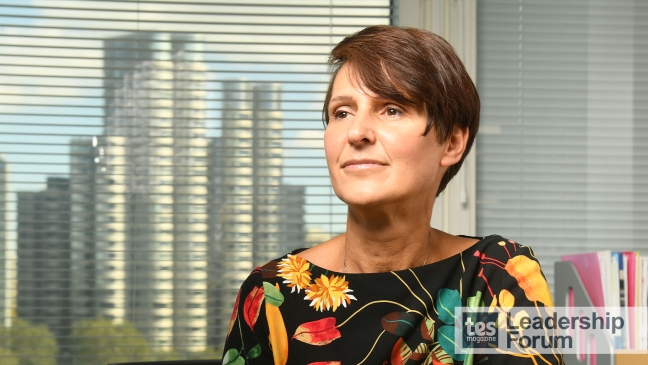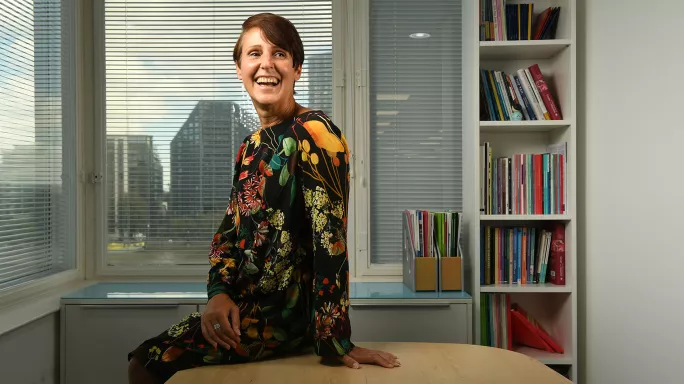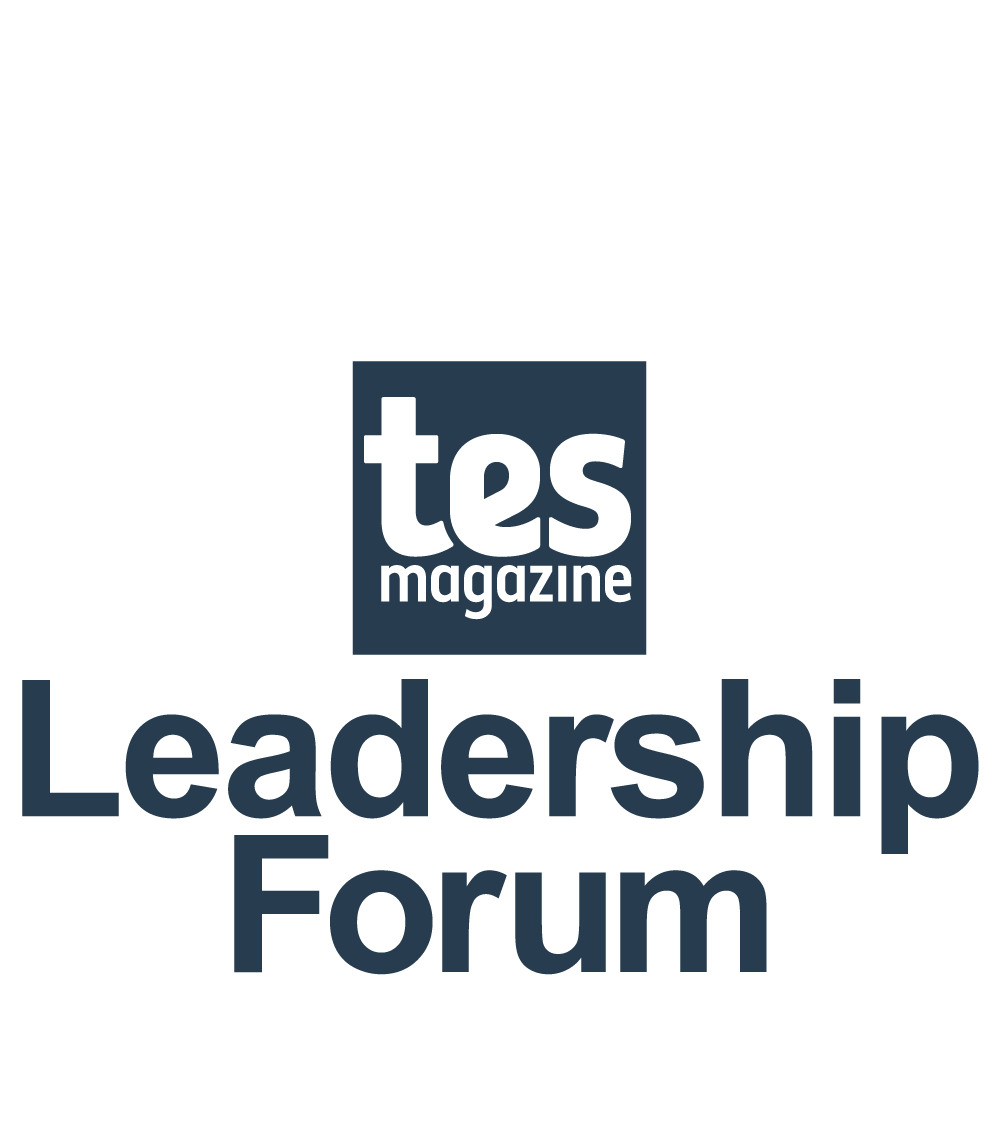- Home
- Leadership
- Strategy
- Becky Francis: ‘You have to be comfortable without control’
Becky Francis: ‘You have to be comfortable without control’

Professor Becky Francis is CEO of the Education Endowment Foundation. She has previously held roles as director of UCL Institute of Education, professor of education and social justice at King’s College London, and standing adviser to the Commons Education Select Committee. She writes:
I never imagined myself as a leader. I was a punk when I was a teenager and my parents were Quakers. Both these groups are anti-hierarchical. So, my journey to leadership has been quite serendipitous, but it has been driven by the ambition and self-agency that being in those non-hierarchical cultures instils in you. I have a confidence and commitment to stand up and effect change.

I feel more comfortable with control. But as an organisation scales, or you move to a larger organisation, you need to be comfortable with not having control of every element of that which you are responsible for. And so I have had to adapt and set up systems and structures that ensure that I can be comfortable.

There are certain principles and values that I will carry with me wherever I go. These include a commitment to social justice and excellence - within the organisation and in our external work - and to fairness, transparency and equality, diversity and inclusion.

I feel strongly that you get the best from people when there’s a culture of respect, collaboration and valuing of what individuals bring. It is important to have those values in leadership; you have to feel you can take decisions with integrity and authenticity. That is only possible if you have a set of principles that remain consistent and from which you will not deviate.

I’m not a conscious collector of leadership strategies or techniques or approaches. I am not a leadership magpie. Obviously, we all subconsciously pick up things through our career, but I have never set out to spot, record and utilise things I see people doing in leadership positions.

I have occasional anxiety - or perhaps it’s just an awareness - about being so much older than everyone else I work with at the EEF and being seen as the jaded cynic. But I have also come to see my age as an asset as a leader - there is huge value in experience, of having learned the lessons. My role is to set strategy, rather than be the go-getter, now. It is a huge privilege that I work with people in my team who do take on that role with such ability.

A leader should always retain the boring, or the difficult, or the unpleasant parts of their job. There are those who “delegate” some or all of those tasks. Ethically, it is wrong to do that. And practically, it can be hugely problematic.

I am ambitious and I am competitive. I think we should be able to admit that about ourselves. I am aware, though, that I need to constantly reflect on that ambition and competitive nature so that it never steps into being destructive - taking too much on for the organisation, for example, or burning myself or others out. It’s my responsibility as a leader to find that balance.

There are gendered constructions of acceptable behaviour that knock on to your sense of self as a female leader. It impacts self-confidence, susceptibility to imposter syndrome, perceptions of charisma and power - and much more. I don’t doubt most male leaders will experience anxiety around all these aspects, too - though they may feel less able to talk about it. And I think if you don’t have doubts and fears, then that in itself can be a problem. You ought to have some doubts and fears as a leader: you are responsible for others.

Some people like being closely managed, to be instructed to a large degree on what to do or to work within tight parameters. That’s not me. One of the reasons I come to work is to have the autonomy to develop strategy from what I see, from the feedback I get and from the data. That is what I enjoy.

I once had a manager who said to me that they didn’t think I would go for a managerial job that had come up, because I struck them as someone who cared about what I did, not about a career. I think it was meant as a compliment. But the fact is, I did care about my career. That I was obviously giving off the impression that I did not care surprised me and it annoyed me. It was an important lesson about how I presented myself.

We too easily dehumanise leaders. If we want leaders who are caring, who reflect and who look after their teams, we need to empathise with them, we need to “step into their shoes” and see the challenges they are facing and the responsibilities they hold. Otherwise, if we hold managers up as the root of all our problems or routinely disparage them, why would a caring person want to take on that leadership job and be seen like that? Instead, you are likely to attract leaders who don’t care what staff think of them - a recipe for unhappy organisations.

Aside from the principles I mentioned earlier, I fit my leadership model to the organisation, not fit the organisation to my model. I don’t believe we should be didactic about how we lead but instead have a range of tools and strategies at our disposal and be ready to roll those out to meet the needs of the organisation we are leading.

I have become more accepting of the fact that I can’t fully determine how those who work with me will see me. I have realised you just have to be authentic and go back to those core principles - that’s all you can control.

I genuinely love my job. I think, as leaders, we need to admit that more and show it more. We owe it to those considering leadership to be honest about the good bits, as well as the bad.
You need a Tes subscription to read this article
Subscribe now to read this article and get other subscriber-only content:
- Unlimited access to all Tes magazine content
- Exclusive subscriber-only stories
- Award-winning email newsletters
Already a subscriber? Log in
You need a subscription to read this article
Subscribe now to read this article and get other subscriber-only content, including:
- Unlimited access to all Tes magazine content
- Exclusive subscriber-only stories
- Award-winning email newsletters
topics in this article




